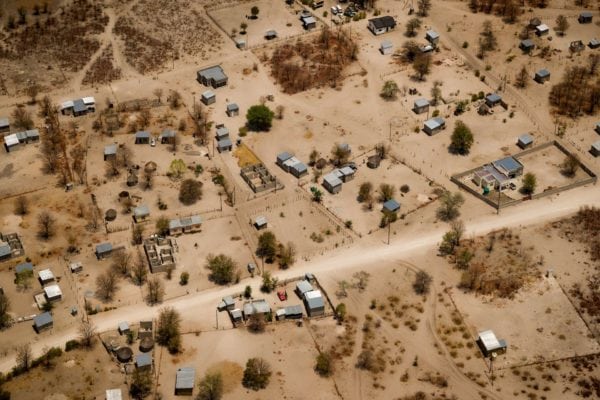Security from Experience IV: Interview with Ton Huijzer (IRC)
Ton started his work in the NGO sector at the Red Cross. He is currently working for the International Rescue Committee (IRC) as alliance manager.
IRC does not have an office in the Netherlands, so he is based in The Hague at Stichting Vluchteling. IRC and Stichting Vluchteling are partner organisations and both share a similar focus on emergency aid and refugees, although IRC’s work is not limited to these themes. As an alliance manager, Ton tries to connect Stichting Vluchteling and IRC. Moreover, he works in the Emergency and Preparedness Unit for IRC.
His experience in the field and as an alliance manager makes that he can provide an interesting perspective on different security needs and on the development of security policy, in the past and in the future.
Different security needs
Stichting Vluchteling regularly visits projects from IRC in conflict areas and elsewhere, with the aim to show the public what is happening in those regions and what they can do about it. This means that although both organisations work actively together, they have very different security needs.
Because IRC is the organisation who is responsible for the projects in the field, they came to an agreement that IRC is also primarily responsible for taking care of security policy and management in the field. Stichting Vluchteling has its own security policies, but in the field they adhere to IRC’s policies. Ton explains that this is crucial, because once in the field, IRC is the one with the most expertise on the security situation and it is of utmost importance to make sure that everyone who is working for or cooperating with the same organisation, adheres to the same security policies.
Ton indicates that although IRC and Stichting Vluchteling are working closely together regarding security policies, both organisations have a different risk profile and sometimes make different risk assessments. Stichting Vluchteling is often traveling with journalists; they have a different risk perception than people working for NGOs because they are likely not to return to a specific location. The impact of incidents on relationships are of less importance for journalists, while this is more important for IRC and Stichting Vluchteling.
Security policies now and then
According to Ton, important elements of effective security management is knowing the context in which you work and knowing the principles and identity of the organisation you work for. Ton did not work with a security policy until 1992, when he was in Afghanistan. He contributed to this first security policy. He sees that the core of security policy is still the same, but there is much more knowledge available about security management. Back then, the policy was more practical, focused on how to act and what to do on a daily basis, when for instance facing checkpoints. Nowadays, security policies are much more extensive and they include plans for evacuation, kidnappings etcetera.
Ton believes that organisations need to be realistic in what they ask from people regarding security plans, also because people have different ideas about security . There can be disagreement about policies, sometimes arising from the fact that people do not always sufficiently realise what the risks are in a certain area.However, Ton is also convinced that the tendency to make security policies extremely strict, is not always good. People should be able to do their job and security policies should support their work, not limit it.
Continuing work
The challenges for coming years will have consequences on the ability of organisations to continue with their work. The world is becoming less safe and organisations do not want to take too many risks. A balance needs to be found in fulfilling a moral duty to take care of people and risks involved in doing so. Ton observes that aid workers are nowadays more considered to be a target. They are often seen as an enemy from the West. Moreover, hostage taking is sometimes seen as a good source of income. Stichting Vluchteling is feeling the consequences of the world becoming more dangerous. It is currently extremely difficult to visit Syria and in CAR they were only able to visit Bangui, so their work is becoming increasingly difficult.
There are different things organisations can do to deal with those increased risks. It is important to know the context in which you are working and what the parties are who are involved in that work. Moreover, Ton explains that it is important to be very clear on what the mandate is and the impact is of work, so the right decisions can be made. Ton sees a development in that staff is getting better trained. A lot of things need to be learned in the field, but it is important to be well prepared.
Ton hopes that organisations will find a way in which acceptance strategy continues to be part of organisation’s work and that a balance is found between effectiveness and security.
